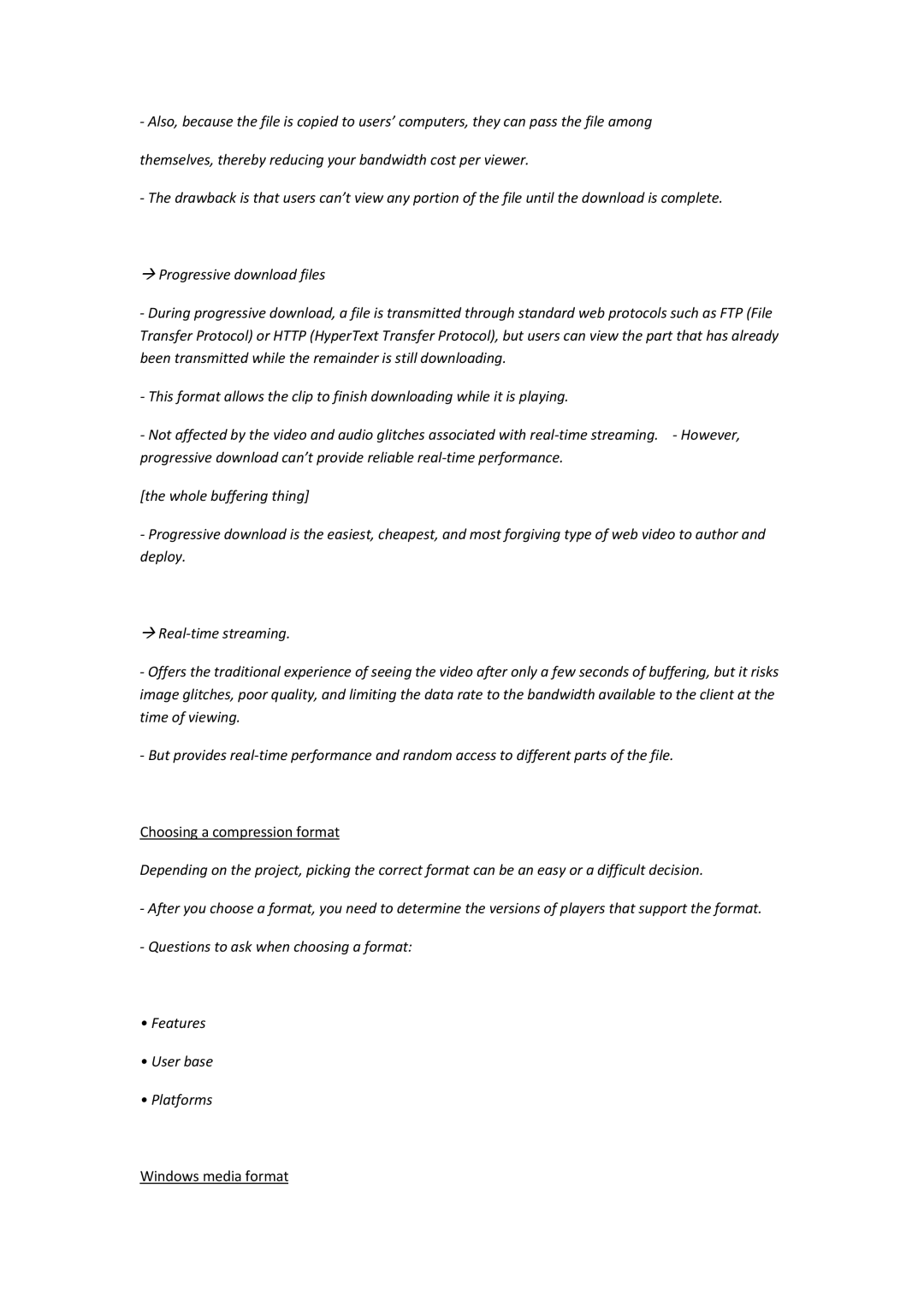‐Also, because the file is copied to users’ computers, they can pass the file among themselves, thereby reducing your bandwidth cost per viewer.
‐The drawback is that users can’t view any portion of the file until the download is complete.
ÆProgressive download files
‐During progressive download, a file is transmitted through standard web protocols such as FTP (File Transfer Protocol) or HTTP (HyperText Transfer Protocol), but users can view the part that has already been transmitted while the remainder is still downloading.
‐This format allows the clip to finish downloading while it is playing.
‐Not affected by the video and audio glitches associated with real‐time streaming. ‐ However, progressive download can’t provide reliable real‐time performance.
[the whole buffering thing]
‐Progressive download is the easiest, cheapest, and most forgiving type of web video to author and deploy.
ÆReal‐time streaming.
‐Offers the traditional experience of seeing the video after only a few seconds of buffering, but it risks image glitches, poor quality, and limiting the data rate to the bandwidth available to the client at the time of viewing.
‐But provides real‐time performance and random access to different parts of the file.
Choosing a compression format
Depending on the project, picking the correct format can be an easy or a difficult decision.
‐After you choose a format, you need to determine the versions of players that support the format.
‐Questions to ask when choosing a format:
•Features
•User base
•Platforms
Windows media format
